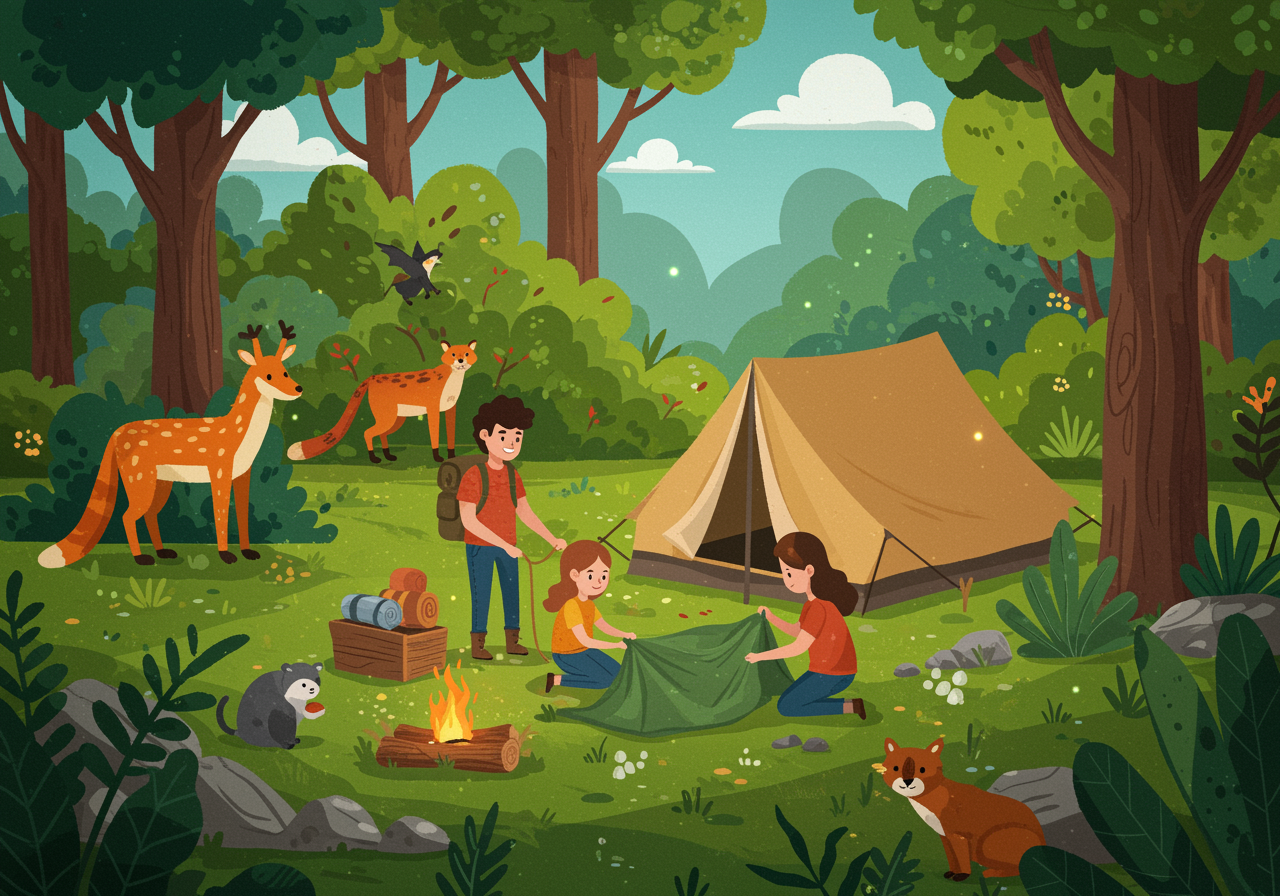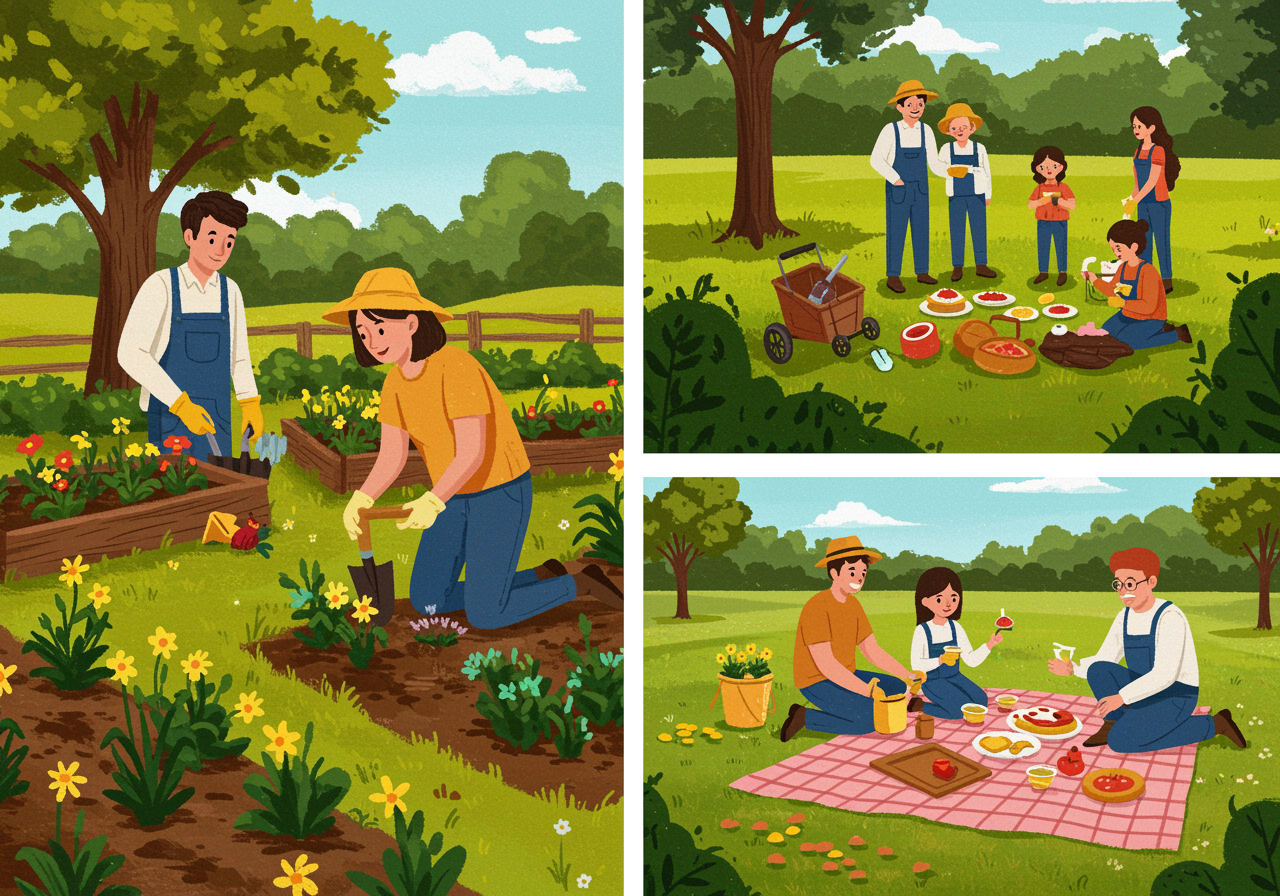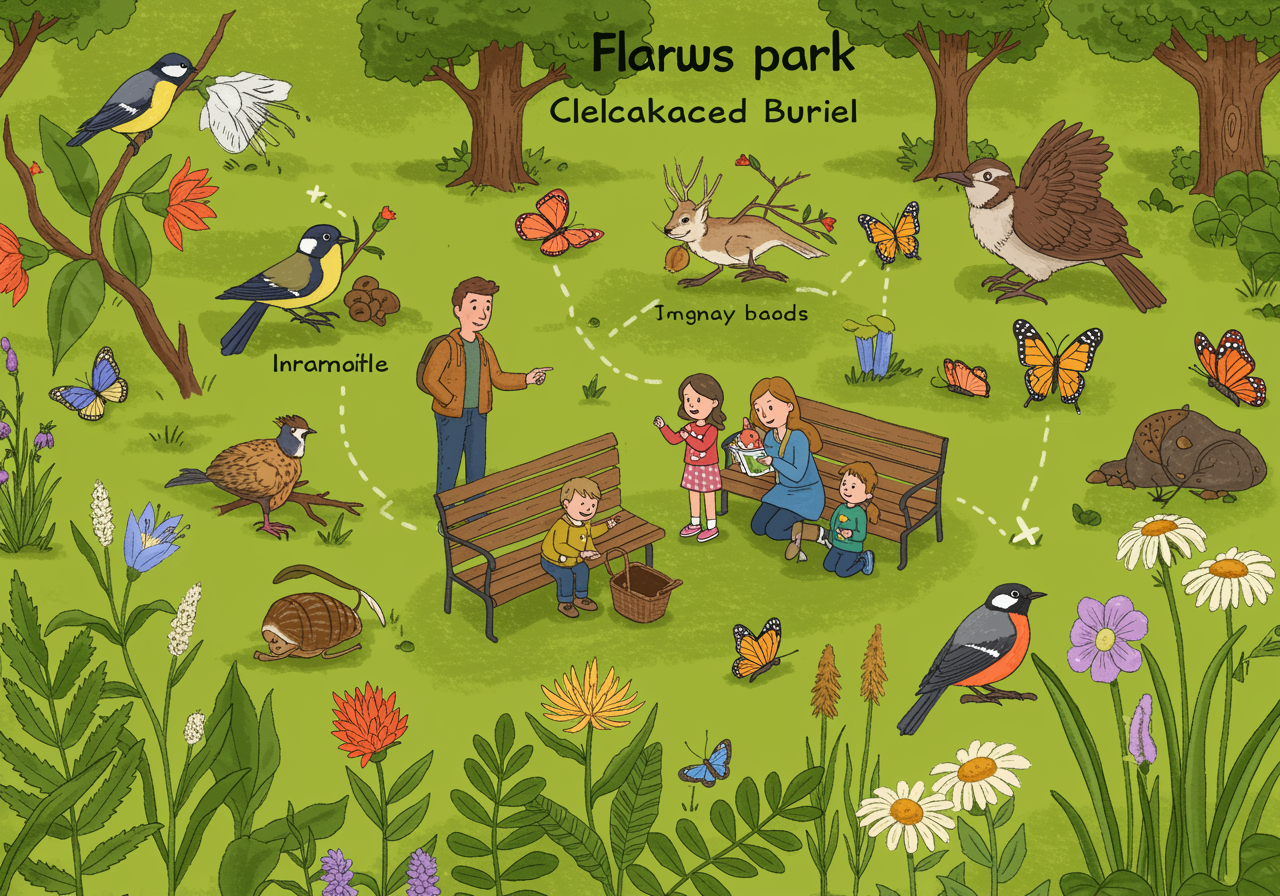Nature’s Magic: How the Great Outdoors Transforms Family Bonds
Discover how stepping outside can change everything about how your family connects with each other and the world around you
Explore the surprising ways that spending time in nature can strengthen family relationships, build environmental awareness, and create lasting memories that shape how we see our place in the world.
Overview
Have you ever noticed how different your family feels during a camping trip or even just a walk in the park? There's something almost magical that happens when we step away from screens and into nature. Whether it's working together to set up a tent, spotting wildlife on a hike, or simply sitting around a campfire sharing stories, the outdoors has this amazing ability to bring families closer together. At the same time, spending time in nature helps us understand our connection to the environment around us – from the local creek to the global climate.

Understand in 30 Seconds
Get up to speed quickly
- Nature = Natural Family Bonding: When families spend time outdoors together, they naturally talk more, work as a team, and create shared memories that strengthen their relationships.
- Environment Becomes Personal: Living close to nature helps families care more about environmental issues because they see firsthand how their actions affect the places they love.
- Stress Melts Away: Research shows that time in nature reduces stress hormones and improves mood for the whole family, making everyone more patient and connected.
- Local Community Grows Stronger: Families who engage with their natural surroundings often become more involved in their local community and environmental protection efforts.
Real Life Scenario
Situations you can relate to
Imagine two families living on the same street. The Johnson family spends most weekends hiking local trails, gardening together, and exploring nearby parks. The Smith family prefers indoor activities and rarely ventures outside. After a year, something interesting happens. The Johnsons start composting, join a local river cleanup, and their teenagers actually choose family bike rides over video games sometimes. They know the names of birds in their backyard and which plants attract butterflies. The Smiths, while happy, feel less connected to their neighborhood and environment. What's the difference? The Johnsons have built a relationship with their surroundings that naturally extends to caring about their community and planet. Which family dynamic sounds more appealing to you?

Role Play
Spark a conversation with “what if” scenarios
What if your family decided to spend one hour outside together every day for a month?
- Role play: Take turns being the 'nature guide' for each family member, where they choose the outdoor activity and teach others what they discover.
What if you could only use things from nature to solve a family challenge?
- Role play: Role-play building a shelter, finding water, or creating art using only materials you can find in your yard or a nearby park.
What if your family adopted a local natural area like a park or trail?
- Role play: Pretend to be park rangers discussing how to protect and care for your chosen space, including what rules to make and how to help wildlife.
FAQs
Frequently asked questions people want to know
Does living in nature mean we have to move to the wilderness?
Not at all! Even families in cities can connect with nature through parks, community gardens, balcony plants, or regular visits to natural spaces nearby.
How does nature actually change family relationships?
Nature provides a break from distractions, encourages teamwork, creates shared experiences, and often leads to deeper conversations while walking or sitting outdoors.
What if my teenager thinks nature activities are boring?
Start small with activities that match their interests – photography in nature, geocaching, outdoor sports, or even just having snacks in a park while talking.
Examples in the Wild
See how this works day to day
- Families who participated in 'Forest Schools' programs showed improved communication and stronger relationships according to recent studies from environmental education researchers. (Environmental Education Association)
- Japanese families practicing 'shinrin-yoku' (forest bathing) report lower stress levels and better family harmony after just 20 minutes in wooded areas. (International Journal of Environmental Research)
- Community garden families are 40% more likely to volunteer for local environmental projects and report feeling more connected to their neighborhoods. (American Community Gardening Association)
- Families who camp together at least once per year show increased cooperation skills and environmental awareness according to outdoor recreation studies. (Outdoor Foundation Research)
In Summary
What you should know before you start
- Nature creates natural opportunities for families to work together, talk more, and bond over shared adventures
- Regular outdoor time helps families develop deeper care and responsibility for their environment and community
- Even small doses of nature – like backyard time or park visits – can strengthen family relationships and reduce stress
- Families connected to nature often become more involved in environmental protection and local community activities
Pro-tip for Parents
You got this!
If your teen resists outdoor family time, don't force it. Instead, find the intersection between their interests and nature – maybe it's outdoor photography, finding cool rocks, bird watching, or even just bringing homework to do in a park. The key is making nature feel like an addition to their world, not a replacement for it. Sometimes the best nature conversations happen when you're not trying too hard to have them.

Keep an Eye Out For
Find these examples in everyday life
- News stories about local environmental issues that might spark conversations about your family's role in protecting nearby nature
- Community events like park cleanups, nature festivals, or outdoor movie nights where your family can connect with both nature and neighbors
- Seasonal changes in your area that create natural conversation starters about weather patterns, wildlife behavior, or plant cycles
Explore Beyond
Look up these related research topics
- How different cultures around the world integrate nature into family life and community traditions
- The science behind why nature makes us feel better and how our brains respond to outdoor environments
- Climate change impacts on local ecosystems and how families can make a difference in their own communities